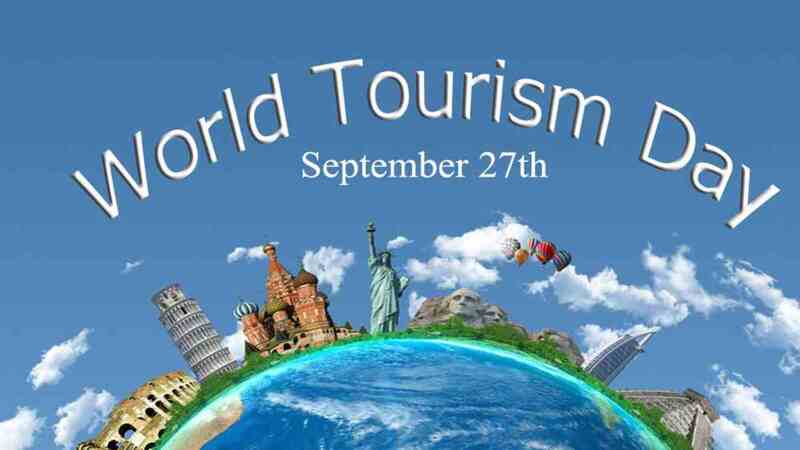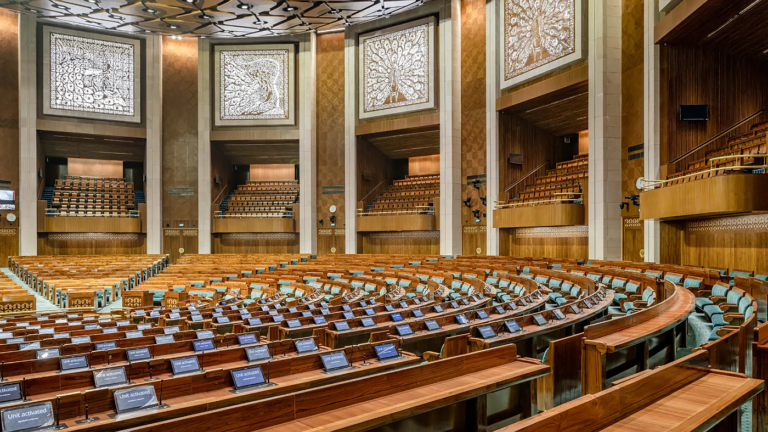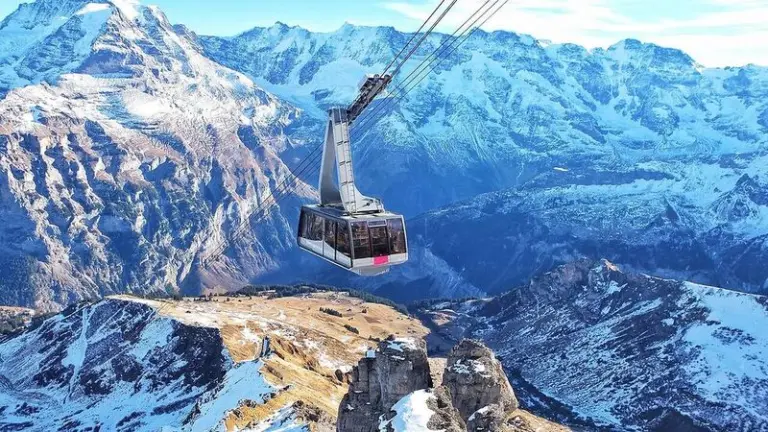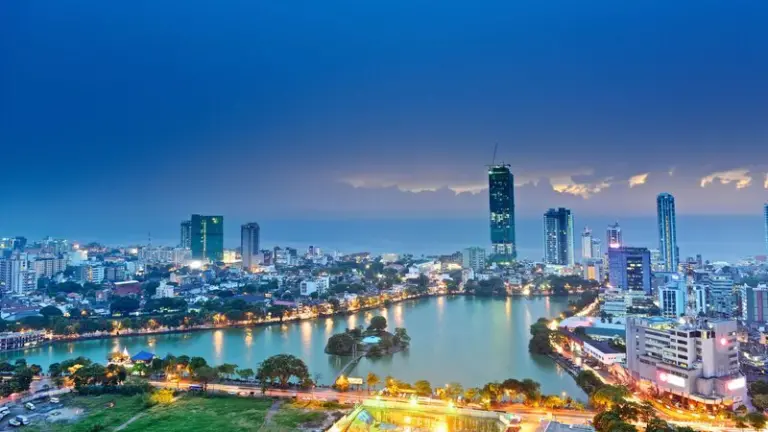World Tourism Day, celebrated annually on September 27th, is a global observance that highlights the importance of tourism in fostering economic growth, cultural exchange, and sustainable development worldwide. This 2000-word essay delves into the history of World Tourism Day, its significance, the impact of tourism on economies and societies, sustainability in tourism, and the challenges and opportunities faced by the tourism industry in the modern world.
Tourism is an industry that transcends borders, cultures, and languages, connecting people from all corners of the globe. It plays a pivotal role in driving economic growth, promoting cultural exchange, and enhancing mutual understanding among nations. Recognizing the immense potential and significance of tourism, the United Nations World Tourism Organization (UNWTO) established World Tourism Day in 1980. This annual celebration serves as a platform to underline the importance of tourism and encourage responsible practices that benefit not only travelers but also the communities and environments they visit.

History and Significance of World Tourism Day
The concept of World Tourism Day originated from the UNWTO’s General Assembly, which convened in 1979. The decision to establish World Tourism Day on September 27th was symbolic, as it marked the anniversary of the adoption of the UNWTO Statutes in 1970. The inaugural World Tourism Day took place on September 27, 1980, and has since been observed every year.
The choice of this date aimed to promote awareness about the role of tourism in global development and foster international cooperation in this sector. Over the years, World Tourism Day has evolved into a significant event celebrated worldwide, with each year focusing on a specific theme that reflects the industry’s current challenges and opportunities. Here are some significances of World Tourism Day.
Economic Growth and Job Creation
Tourism is a powerful economic driver, contributing significantly to the GDP of many countries. It generates income, creates job opportunities, and supports various sectors, including hospitality, transportation, and retail. World Tourism Day emphasizes the economic importance of tourism and encourages governments and businesses to invest in its development.
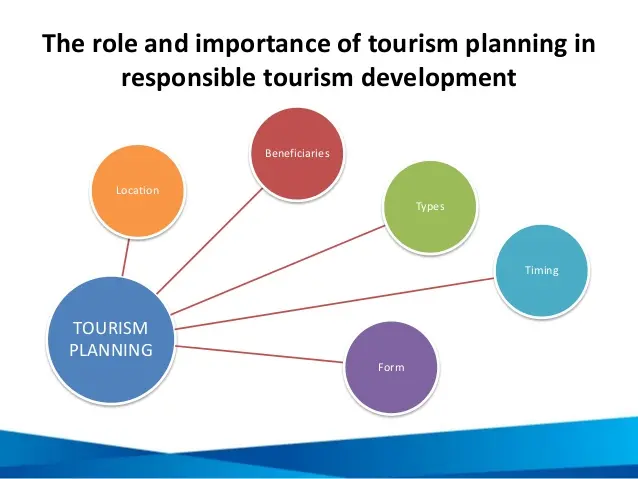
Cultural Exchange and Understanding
Tourism promotes cultural exchange and mutual understanding among people of different backgrounds. It allows travelers to immerse themselves in diverse cultures, traditions, and lifestyles, fostering tolerance and appreciation for global diversity. Through tourism, people become cultural ambassadors, helping to bridge gaps and break down stereotypes.
Sustainable Development
Sustainability has become a central theme of World Tourism Day in recent years. Responsible and sustainable tourism practices are essential for preserving natural environments, protecting cultural heritage, and ensuring the long-term viability of the tourism industry. This aspect of the celebration emphasizes the need for environmentally friendly and socially responsible tourism.
Global Cooperation
World Tourism Day provides an opportunity for countries, organizations, and individuals to collaborate and share best practices. It encourages the exchange of knowledge and experiences in tourism management, marketing, and development. This global cooperation is crucial for addressing common challenges and maximizing the benefits of tourism.
Tourism’s Impact on Economies and Societies
Economic Impact
Tourism is a vital economic sector for many countries. It contributes to GDP, generates foreign exchange earnings, and provides employment opportunities. The revenue generated from tourism often supports infrastructure development, such as transportation networks and accommodations, which benefit both travelers and local communities.
Additionally, tourism has a multiplier effect on various industries. It boosts the hospitality sector, stimulates demand for local products, and encourages investment in related services like restaurants, entertainment, and retail. In regions heavily dependent on tourism, such as the Caribbean, Mediterranean, and Southeast Asia, it can account for a significant portion of the GDP.

Social and Cultural Impact
Tourism also has a profound impact on societies and cultures. It fosters cross-cultural interactions, leading to increased tolerance and appreciation of diversity. Tourists engage in cultural activities, visit historical sites, and participate in local traditions, contributing to the preservation and promotion of cultural heritage.
Moreover, tourism can have a positive effect on community development. Revenue generated from tourism often supports educational and healthcare initiatives, infrastructure improvements, and the preservation of cultural heritage. This, in turn, enhances the quality of life for local residents.
Environmental Impact
While tourism brings numerous benefits, it can also have adverse environmental consequences. Overcrowding, pollution, and habitat destruction are some of the negative effects associated with poorly managed tourism. However, responsible tourism practices, such as ecotourism and sustainable development, aim to minimize these impacts.
Sustainable tourism emphasizes the importance of preserving natural environments and wildlife while providing opportunities for travelers to appreciate and learn about nature. Sustainable practices include minimizing waste, conserving energy, supporting local conservation efforts, and promoting responsible wildlife viewing.

Sustainability in Tourism
Sustainability has become a core principle of modern tourism. It acknowledges the need to protect natural resources, conserve biodiversity, and respect local cultures while providing memorable travel experiences. Several key aspects of sustainability in tourism include:
1. Ecotourism
Ecotourism focuses on environmentally responsible travel to natural areas that conserve the environment and benefit local communities. It promotes activities like hiking, wildlife observation, and nature-based experiences while minimizing negative environmental impacts.
2. Cultural Preservation
Preserving and respecting the cultural heritage of host communities is essential in sustainable tourism. This includes supporting local artisans, respecting traditions and rituals, and contributing to the maintenance of historical sites and monuments.
3. Community Engagement
Engaging with and benefiting local communities is a fundamental aspect of sustainability. Tourism should create opportunities for local residents to participate in and benefit from the industry. This can include job creation, revenue-sharing, and community-based tourism initiatives.
4. Responsible Travel Practices
Tourists play a crucial role in sustainable tourism. Responsible travelers are mindful of their impact on the environment and local communities. They make efforts to reduce waste, conserve resources, and respect local customs and regulations.
5. Conservation Efforts
Sustainable tourism often supports conservation initiatives. Funds generated from entrance fees, wildlife viewing, and other tourism-related activities can contribute to the preservation of natural areas and protection of endangered species.
Challenges and Opportunities in the Tourism Industry
1. Overtourism
Overtourism, the excessive influx of tourists to popular destinations, has become a significant challenge. It can lead to overcrowding, environmental degradation, and a strain on local resources and infrastructure. Solutions include promoting lesser-known destinations and implementing visitor limits.
2. Environmental Impact
The environmental impact of tourism, including carbon emissions from travel and resource consumption, remains a concern. Sustainable practices, such as reducing emissions and minimizing waste, are essential to mitigate these effects.
3. Cultural Commodification
Cultural commodification, where local cultures are commercialized for tourist consumption, can lead to the erosion of authenticity. Balancing cultural preservation with tourism demands is a complex challenge that requires careful management.
4. Economic Disparities
In some cases, tourism can exacerbate economic disparities, with a significant portion of revenue going to large corporations rather than benefiting local communities. Efforts to promote community-based tourism and fair distribution of benefits are necessary.
5. Technological Advancements
Advancements in technology, including online booking platforms and the rise of digital influencers, have transformed the tourism industry. These innovations offer opportunities for growth but also pose challenges related to privacy, data security, and the impact of online reviews.
The Role of Technology in Tourism
Technology has playeda transformative role in the tourism industry. Online booking platforms, mobile apps, and digital marketing have made travel more accessible and convenient for consumers. Moreover, technology has enabled businesses to improve customer experiences through personalized recommendations, virtual tours, and contactless check-ins.
However, the digital revolution in tourism also raises concerns. The rise of online reviews and social media influencers can influence travelers’ decisions and impact businesses’ reputations. Privacy and data security are critical considerations, especially with the collection of personal data for booking and marketing purposes.
The Future of Tourism
The future of tourism will likely see continued growth and innovation, but it must also prioritize sustainability, responsible practices, and inclusivity. Several key trends and considerations are shaping the future of the tourism industry:
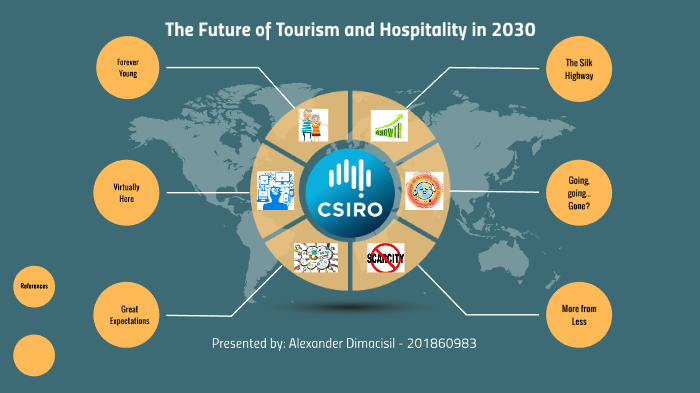
1. Sustainable Tourism
Sustainability will remain a central focus. Travelers are increasingly seeking eco-friendly and responsible travel options. Governments and businesses must work together to implement sustainable practices, protect natural environments, and promote cultural preservation.
2. Digital Transformation
Technology will continue to shape the way people plan and experience travel. Artificial intelligence, augmented reality, and virtual reality will enhance traveler experiences, providing immersive and interactive content. Digital platforms will continue to evolve, offering more personalized and convenient booking options.
3. Wellness Tourism
Wellness tourism, which focuses on physical, mental, and spiritual well-being, is gaining popularity. Travelers are seeking destinations and experiences that promote relaxation, health, and personal growth. This trend includes activities such as spa retreats, mindfulness retreats, and eco-friendly wellness travel.
4. Authentic Experiences
Travelers are increasingly seeking authentic and immersive experiences that connect them with local cultures and communities. This trend encourages cultural exchange and benefits host communities, supporting the preservation of cultural heritage.
5. Inclusivity and Accessibility
Inclusivity and accessibility in tourism will be a priority. The industry must address the needs of travelers with disabilities, promote gender equality, and ensure that destinations are accessible to all.
World Tourism Day serves as a global celebration of an industry that has the power to bring people together, stimulate economies, and promote cultural exchange. However, with this power comes great responsibility. Sustainable and responsible tourism practices are essential to ensure that the benefits of tourism are felt by all, including local communities and the environment.
As the world continues to evolve, so too must the tourism industry. Embracing technology, fostering sustainability, and promoting inclusivity are crucial steps in shaping the future of tourism. By recognizing the impact of tourism, both positive and negative, and by working together to address its challenges, we can ensure that World Tourism Day continues to celebrate the transformative power of travel for generations to come.

